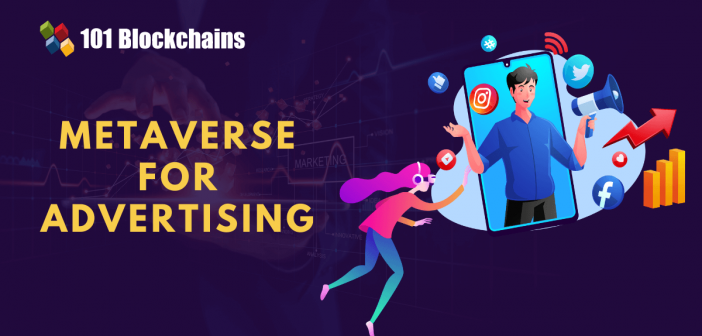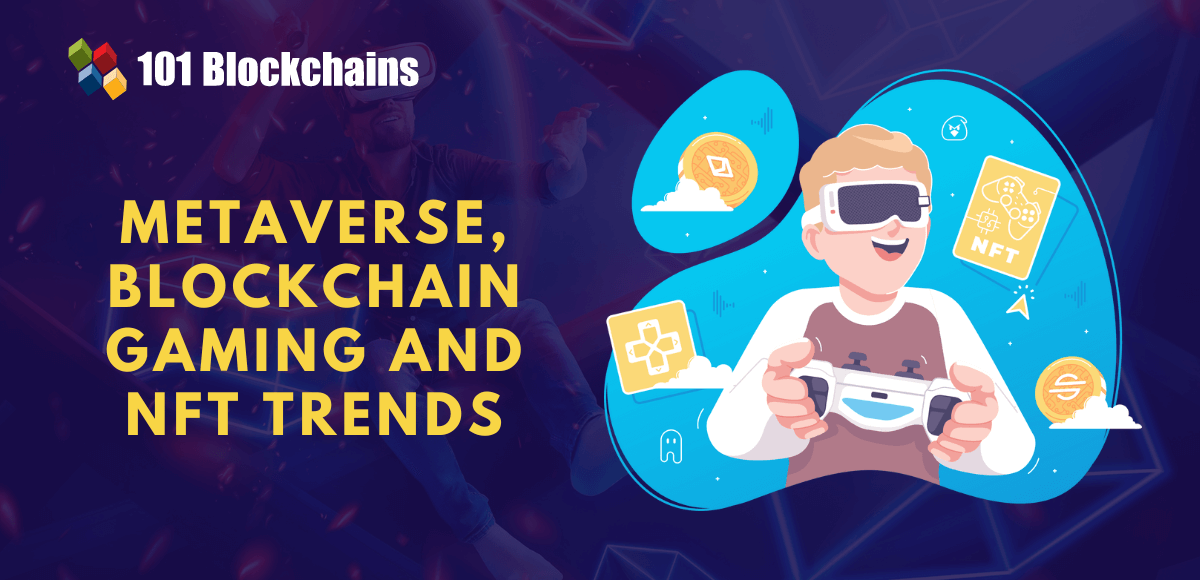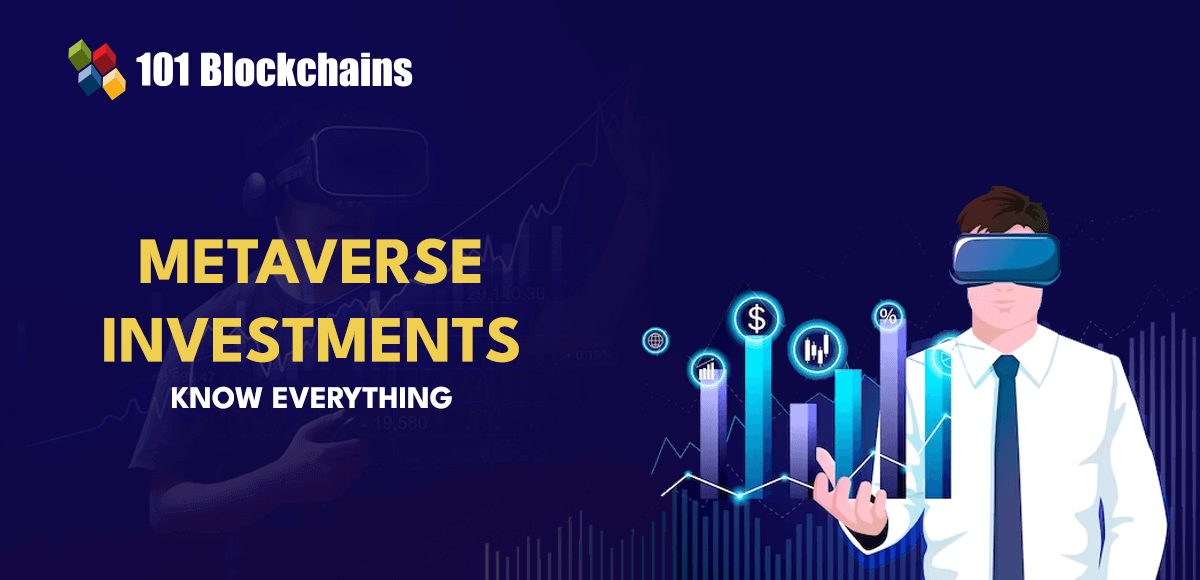Learn how blockchain truly works, master key definitions, and uncover what makes smart contracts so "smart." Dive into the fundamentals, gain valuable insights, and start your blockchain journey today!

- Metaverse
James Howell
- on February 04, 2022
Metaverse for Advertising – Is Metaverse Advertising the Next Big Thing?
Wondering if metaverse advertising is really going to be the next big thing? Learn the applications of metaverse for advertising to find the answer!
The massive scale of innovation in technology at a rapid scale has undoubtedly presented many emerging opportunities. Metaverse is probably the best example of technological innovation tailored for transforming the way we connect with one another and use services on digital platforms.
As a shared, persistent, and open three-dimensional world where people could interact with each other as digital avatars and explore different virtual spaces, the metaverse is more than a 3D version of the internet. The applications of metaverse for advertising have been the foremost priorities for enterprises seeking new ways for leveraging the metaverse to their benefit.
Well, one can clearly notice the potential for marketing in a three-dimensional world with immersive and engaging experiences. However, it is also reasonable to wonder about the scope for metaverse advertising and whether it would materialize into something of value in the future. Are enterprises ready to adopt metaverse as a tool for marketing their brand to target customer bases? You can find the answer only by reflecting on the potential opportunities for advertising in the metaverse. The following discussion helps you find out all the potential use cases of metaverse in advertising which can deliver value to modern enterprises. With the help of real-world examples, you can gauge the prospects for the adoption of a metaverse in different marketing use cases.
Importance of the Metaverse for Marketing
If you want to find the answer for “How metaverse will affect marketing?” you have to know how the metaverse fits perfectly with marketing. First of all, you need to know that the metaverse is more of a parallel virtual world with multiple interconnected virtual spaces. People could enter the metaverse and participate in it as digital avatars. The range of activities on the metaverse includes shopping, trading assets, socializing, and creating experiences and items.
A completely operational metaverse, although a few years away, would feature a blend of multiple technologies, including 3D avatars, AR, VR, and audiovisual elements. You can find a few hints of the metaverse in online games such as Fortnite, Minecraft, Animal Crossing, and Roblox. Other popular examples such as Decentraland and Sandbox also present vital signs for the future of the metaverse. So, the metaverse has a lot of games right now and might add some more in the future. How does it help with marketing? To find the answer, you need to reflect on the essential traits of the metaverse, which provide the ideal foundation for marketing. As a matter of fact, the traits of the metaverse show that it is more than just virtual theme parks.
Want to get an in-depth understanding of metaverse concepts? Enroll in Metaverse Fundamentals Course Now!
How Does the Metaverse Fit with Advertising?
The following characteristic features of the metaverse can show you how metaverse advertising is a favorable proposition.
-
Always Operational
The metaverse always remains active, and the persistent environment does not pause when you leave the platform. All activities on the platform continue indefinitely.
-
Functions in Real-time
Metaverse synchronizes with the time of the real world, thereby offering a direct channel to communicate with the target audience.
-
No Restrictions
One of the foremost highlights in metaverse advertising examples would be the assurance of complete freedom. Participants don’t have to be restricted in walled gardens and can explore many other virtual spaces in the metaverse. Therefore, brands get a broader playground for advertising on the metaverse.
-
Creator Economy
The fully autonomous and self-contained universe in the metaverse supports the creation, ownership, and trading of many assets. Users can also find opportunities for rewards in return for their contribution to the metaverse.
-
User-Generated Content
Most important of all, the uses of metaverse for advertising become more relevant with better opportunities for user-generated content. The metaverse gives more than just virtual spaces for users to hang out. Users could create content as well as experiences for other users, and brands could leverage this aspect for expanding their advertising reach.
Learn the core concepts of Metaverse through Metaverse flashcards to extend your knowledge and get ahead of the crowd!
Opportunities for Advertising in the Metaverse
The different traits of the metaverse show that it is a good choice for advertising. It is always available, runs in real-time, offers an independent, autonomous creator economy, and most importantly, the metaverse is user-driven. However, many would ask, “Can you advertise in the metaverse?” for obvious reasons.
The question leans towards the practical implications of advertising on the metaverse. In theory, everything about the metaverse sounds good for marketing your brand. On the other hand, you might wonder about how to get started with metaverse advertising and the best practices for the same. Here are some of the possible ways brands could try out the metaverse for marketing.
-
Branded Virtual Real Estate and Characters
Many brands have created branded characters and arenas or recreated their services within virtual environments of online games. Interestingly, brands have blended in natively with the game environments rather than disrupting the experience of gamers. The two most popular online games for brand insertions right now include Fortnite and Animal Crossing.
One of the notable metaverse advertising examples would be Verizon. The brand gave players a chance to meet the avatars of NFL players as it brought the Super Bowl stadium on Fortnite. The women’s razor brand of Procter & Gamble, Venus, has created skin types for different avatars in Animal Crossing, which feel more realistic.
In addition, another example of a popular brand using the metaverse for advertising is Unilever. Its mayonnaise brand, Hellmann, created its own branded island on the Animal Crossing game. You can clearly notice how brands can use virtual real estate and characters in the metaverse for organic advertising, which resonates with the target audience.
Want to learn Metaverse concepts quickly? Check out Metaverse FAQs
-
Digital Offerings for Avatars
Avatars are one of the integral aspects of the metaverse, and they would play a vital role in various use cases of metaverse in advertising. You must have come across avatars the first time you used the internet. They are the virtual representation of our physical selves and could be the ideal opportunity for brands to make their presence felt in the metaverse.
Brands could sell the virtual counterparts of almost every product sold in the real world and capitalize on the uses of metaverse for advertising. Gucci has been one of the top brands to make the most of this trend by releasing a digital collection of its signature clothes on Roblox. Gucci has collaborated with avatar creator Zepeto alongside integrating the SDK of another avatar creator, Genies, in its app. Many other prominent luxury brands such as Balenciaga and Louis Vuitton are developing digital assets for in-game purchases. In addition, they are also creating their own branded in-game worlds alongside dropping limited-edition NFT collections.
The examples of high-end brands exploring opportunities for advertising in the metaverse give a solid answer for “Can you advertise in the metaverse?” without any doubts. In the future, we may witness brands offering their new collections for customers virtually before actually releasing them. One can clearly notice the double advantage of using avatars as tools for enabling customers to test products.
-
Massive Interactive Live Events
The next big thing which presents opportunities for marketing in the metaverse is events. Massive Interactive Live Events or MILEs utilize a single simulation for bringing together many users on a single platform. The MILEs can be an event or a game in real-time and offer the ability to engage with large audiences.
Events are another prominent highlight for answering “How metaverse will affect marketing?” with some successful examples. American rapper Travis Scott performed in a live concert on Fortnite with an audience of almost 12.3 million gamers. Famed fashion brand, Balenciaga, unveiled its fall 2021 collection on a video game, Afterworld, based on Epic Games’ Unreal Engine.
Want to become metaverse expert? Checkout detailed guide on How To Become Metaverse Developer
-
Inclusivity and Diversity
Finally, the most important factor driving the opportunities for metaverse advertising examples would point towards inclusivity and diversity. Almost 71% of consumers perceive that brands should encourage diversity and inclusion in their online advertising. At the same time, almost 54% of consumers feel the lack of complete representation in online ads.
However, the metaverse might allow brands to break such barriers by enabling users to create their own experiences. Brands could natively enter into the metaverse experiences of users, thereby making them feel included. For example, consumers would be more than excited to try on a new clothing collection rather than seeing an online advertisement with a celebrity wearing them.
The examples of AR experiences on social media clearly establish the potential for using the metaverse for advertising in the future. However, it is also important for brands to get ahead in tapping into the opportunities for advertising with the metaverse.
Final Words
The metaverse offers an innovative marketing channel for brands all over the world. As users interact with each other, socialize and trade experiences and digital assets in virtual spaces, brands can explore opportunities for reaching customers in an organic way. The metaverse is still evolving, albeit with many existing platforms serving a vital role in driving advertising opportunities.
However, every new marketing channel or technology comes with a fair share of challenges. For starters, the metaverse is not completely operational. So, you have to approach metaverse advertising with a lot of caution. The learning curve of the metaverse and the technological shift required for brands to adapt to marketing in metaverse can pose challenges. Start exploring more about the capabilities associated with metaverse for marketing now.
*Disclaimer: The article should not be taken as, and is not intended to provide any investment advice. Claims made in this article do not constitute investment advice and should not be taken as such. 101 Blockchains shall not be responsible for any loss sustained by any person who relies on this article. Do your own research!






